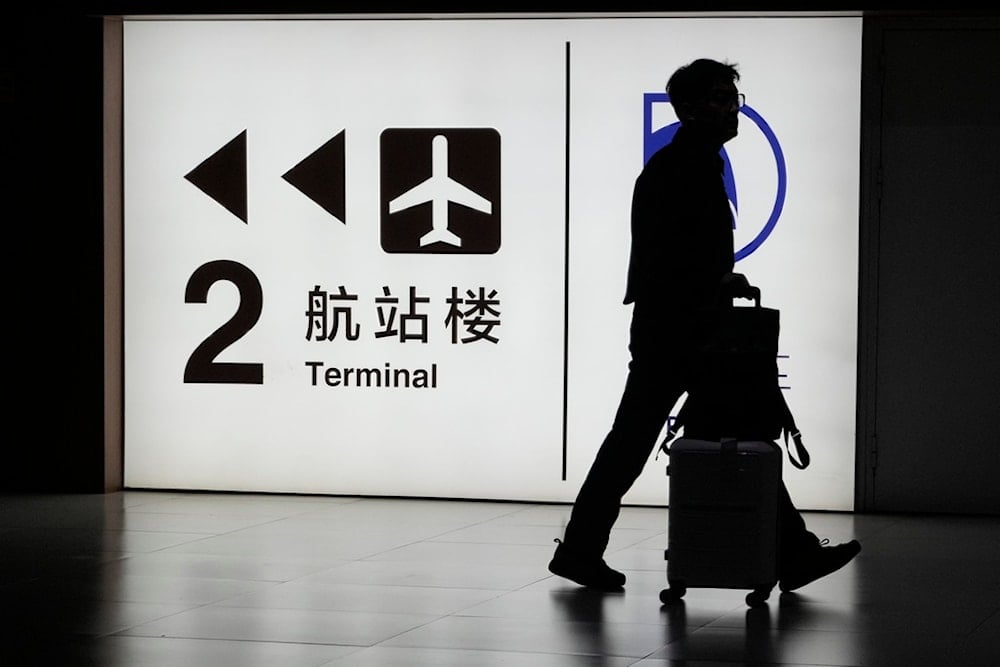China renews travel warning to citizens amid tensions with Japan
The embassy urged Chinese residents currently in Japan to strengthen personal safety measures and remain alert, especially amid the rising number of abuse reports.
-

A passenger arrives at the Capital Airport in Beijing on Nov. 7, 2025. (AP Photo/Ng Han Guan)
China on Wednesday renewed its warning to citizens against traveling to Japan, citing increasing diplomatic tensions between the two countries and recent reports of physical assaults and verbal abuse targeting Chinese nationals.
In a statement published on social media platforms, the Chinese embassy in Tokyo said it had received reports from citizens stating that they were subjected to “unjustified beatings and insults” in recent days, some resulting in injuries.
The embassy urged Chinese residents currently in Japan to strengthen personal safety measures and remain alert, especially amid the rising number of incidents reported by the community.
It further stated that official data points to a rise in violent crime in Japan in recent years, without elaborating on specific figures.
Half a million Chinese opt out of Japan visit
In mid-November, nearly half a million trips from China to Japan were abruptly called off over a single weekend, according to a report from the South China Morning Post, marking the most severe disruption in air travel between the two countries since the onset of the COVID-19 pandemic.
The surge in cancellations came immediately after Beijing issued a new travel advisory. On Sunday, China's Ministry of Culture and Tourism urged citizens to avoid visiting Japan and told those already there to stay alert due to unspecified safety risks.
The advisory framed the warning as a response to concerns for Chinese nationals' safety, a justification Beijing has used in past diplomatic rifts with other countries.
Chinese carriers subsequently began offering full refunds on tickets bound for Japan, a move that is highly unusual outside of major crises and was interpreted by analysts as a sign that the government wanted the advisory to have an immediate impact.
Read more: Rising China–Japan tensions spill into culture, tourism
Doplomatic rift widens
The renewed warning comes amid growing diplomatic friction between China and Japan. The dispute intensified after Japanese Prime Minister Sanae Takaichi stated on November 7 that a Chinese strike on Taiwan would create a "survival-threatening situation," forcing Japan to respond. Beijing’s reaction to the remark has driven the current downturn in travel.
In the days following Takaichi’s comments, Beijing escalated its response beyond diplomatic protests. On November 16, China’s coast guard conducted a ‘rights enforcement patrol’ around the Senkaku islands, waters Japan controls but China claims, while Chinese military drones flew near Japan’s outer territories.
China also summoned the Japanese ambassador for the first time in more than two years, issued multiple warnings against Japanese interference in Taiwan, and urged Chinese citizens not only to avoid travel to Japan but also to reconsider studying there, citing an increasingly unstable security environment.
Japan spikes tensions despite Chinese warnings
Japan has significantly expanded its military presence in the region, conducting joint exercises with the United States and expanding missile deployments across its southwestern islands.
Recently, and despite Chinese warnings, Tokyo decided to go ahead with missile deployments near Taiwan.
The move forms part of a broader military buildup across Japan’s southwestern island chain, which includes upgraded long-range missile programs and expanded Self-Defense Forces infrastructure aimed at reinforcing deterrence around the Taiwan Strait.
At a press briefing, Chinese Foreign Ministry spokesperson Mao Ning said that Tokyo’s intention to place medium-range missiles on Yonaguni Island, roughly 110 kilometers from Taiwan, amounts to "a deliberate attempt to escalate regional tensions and provoke military conflict."

 4 Min Read
4 Min Read








